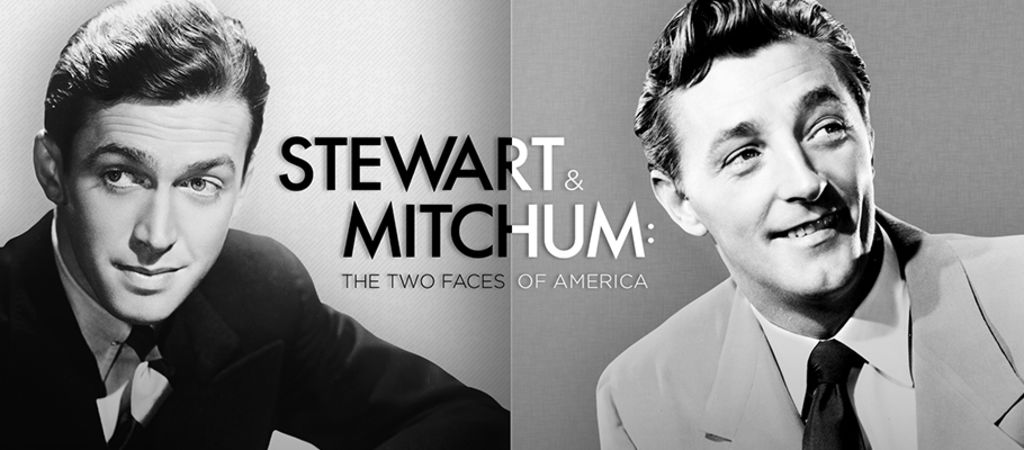‘

The 2017 documentary James Stewart, Robert Mitchum: The Two Faces of America traces the mostly parallel and mostly contrasting Hollywood careers of icons James Stewart and Robert Mitchum.
Hero and anti-hero. James Stewart became perhaps American cinema’s greatest screen actor by portraying earnest, well-meaning,, play-by-the-rules types like George Bailey and Jefferson Smith. Mitchum, so identified with film noir, is known as an insolent rebel with no pretense of following anybody else’s rules. (Of course, it’s more complicated than that – among Stewart’s greatest performances are his darkest, in Hitchcock classics like Vertigo and Rear Window and in Anthony Mann’s psychological Westerns like Winchester ’73.)
James Stewart, Robert Mitchum: The Two Faces of America is not a deep dive into this optimism/cynicism theme of American postwar psychology. Instead, it’s more of a marriage of two showbiz biodocs.
That being said, fans of the actors (and I am a big fan of both) get some insights. Both actors reflect on their own work (see trailers below). The most evocative segment is about Stewart’s grief at the loss of his son, a marine killed in the Vietnam War that Jimmy himself supported politically.
Stewart and Mitchum did not socialize, despite their daughters knowing each other in high school. They only worked together once, late in their careers, in the 1978 remake of The Big Sleep. James Stewart, Robert Mitchum: The Two Faces of America highlights a remarkable coincidence in their deaths.
I watched James Stewart, Robert Mitchum: The Two Faces of America on Turner Classic Movies, where it will be replayed on June 25. It is also streaming on the subscription services WATCH TCM and DIrecTV.
